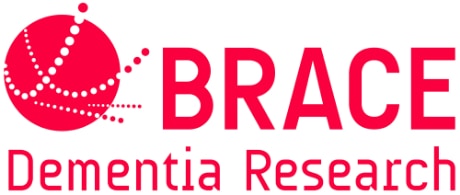Dr Katie Lunnon
PhD: University of Exeter, 2014
Exploring the role of epigenetic changes in Alzheimer’s disease
See glossary at bottom of page for definition of underlined words.
Summary
The ANK1 gene has been shown to undergo modification in the regions of the brain that typically show degradation due to Alzheimer’s disease (AD). This work will seek to understand the specific region of ANK1 which undergoes change, what effect this change has on the working of the cell and the effect of stopping this modification on the cell-based model. This work will help understand how AD targets specific regions of the brain and potentially provide new therapeutic drug targets for the control of AD.
What do we already know?
Expression of genes relies on a person’s DNA sequence, but an extra level of information is provided by epigenetics. Epigenetic modifications involve chemical tags which are able to turn genes on and off, and can be influenced by the environment that cells are in.
It has been found by this research group that a region of the gene known as ANK1 has a higher level of epigenetic modification in the brains of those with Alzheimer’s disease than those without. This is seen in regions associated with the disease, but not in regions which are generally unaffected or in blood samples taken from the patients during their lifetime. This may explain why some regions of the brain are affected more severely by Alzheimer’s disease while others remain relatively resistant to this damage.
What is this project trying to find out?
This project will look at the extent and location of epigenetic changes of the ANK1 gene in Alzheimer’s disease. This information will then be related to expression levels of the gene and the degree of Alzheimer’s disease as judged from autopsy examination.
How will they do this?
Molecular biology techniques will be used to assess the extent and location of epigenetic changes across the ANK1 gene in post-mortem Alzheimer’s disease brain tissue compared to controls. The abundance of ANK1 products will also be measured. This information will be related to the degree of disease progression to see if there is any relationship. Epigenetic editing techniques will be used to reverse the epigenetic changes in cell model experiments and see the effects this has on the properties of the cell.
Why is it important?
Epigenetic changes are potentially reversible, so identifying pathological epigenetic changes of ANK1 may help to identify new drug targets for Alzheimer’s disease.
Glossary
Gene – A gene is a region of DNA responsible for production of a protein.
Expression (of genes) – Expression of a gene involves the ‘turning on’ of the production of the relevant protein.
DNA Sequence – The precise ordering of the bases from which DNA is composed.
Epigenetic changes – Changes in the production of a protein that DO NOT involve changes in the DNA sequence.
Autopsy examination – an examination of a body after death to determine the cause of death or the character and extent of changes produced by disease.
Control Group – A control group in a scientific experiment is a group separated from the rest of the experiment, where the independent variable being tested cannot influence the results. In this case, the control group involves using brain tissue of people that did not have Alzheimers disease.
Further information
Please click here to find out more about dementia research at Exeter
Please click here for more information about the work of Adam Smith.
Please click here for more information about the work of Dr Katie Lunnon.
Please click here for more information about the work of Professor Jonathan Mill.
Share this page
